Issue 1 2018
Table of Contents
- From the Director
- Rice on the menu at Parliament House
- Graduation for FGC PhD Dr Kyle Reynolds
- Professor Chris Blanchard appointed to GRDC Board
- Why people choose Gluten Free
- Researchers raise awareness of Thrombosis
- Focus on oilseeds
- Personal perspective on school mentoring program
- Australasian Grain Science Association conference
- Day two of the AGSA conference
- Wheat breeding focus
From the Director
2017 finished on a high with the Graduation of FGC PhD graduate Dr Kyle Reynolds. I had the pleasure of getting to know Kyle as 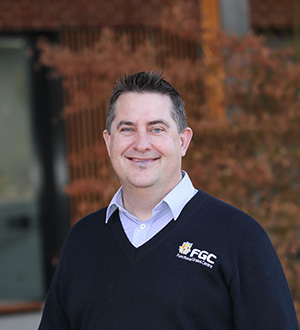 an undergraduate student when he participated in a student trip to Switzerland that I coordinated. Kyle enjoyed that trip so much he joined us again the next year on a trip to the US. During these trips, it became clear to me that Kyle had a real passion for science and was already showing strong leadership skills. During his PhD, Kyle underwent enormous growth and demonstrated by the end of his PhD that he has the capacity to be an independent researcher. It has been a privilege to watch Kyle develop, as it is to see all of our students develop into independent researchers. We wish Kyle all the best in his current role as a postdoctoral fellow at CSIRO and look forward to hearing about the important contributions that he will make to the grains industry in the future.
an undergraduate student when he participated in a student trip to Switzerland that I coordinated. Kyle enjoyed that trip so much he joined us again the next year on a trip to the US. During these trips, it became clear to me that Kyle had a real passion for science and was already showing strong leadership skills. During his PhD, Kyle underwent enormous growth and demonstrated by the end of his PhD that he has the capacity to be an independent researcher. It has been a privilege to watch Kyle develop, as it is to see all of our students develop into independent researchers. We wish Kyle all the best in his current role as a postdoctoral fellow at CSIRO and look forward to hearing about the important contributions that he will make to the grains industry in the future.
There were a number of other proud moments throughout 2017 including the 2017 Australasian Grain Science Association conference in Christchurch where our students and researchers made a big contribution to the program. I was so proud of how our team conducted themselves at the conference and the high quality of their presentations. I was particularly proud of Esther Callcott who received the best student presentation award for her outstanding talk.
It has been pleasing to see centre members travelling and engaging with collaborators and other stakeholders. Shiwagini Rao has certainly been working on her frequent flyer miles with visits to the Philippines and Curtin University in 2017. Associate Professor Waters and I have enjoyed our continued interactions with local breeders and other collaborators. I had the opportunity to attend the Australian Agronomy conference in Ballarat where it was great to see Graham Centre members Professor Jim Pratley and Dr John Angus acknowledged for their contributions. I also had the opportunity to join the Australian Business Week in India delegation in New Delhi. Even though the second half of the program was cancelled due to flooding in Mumbai, I was still able to develop an improved understanding of the complex Indian pulse market. We even managed to find canola oil processed in Wagga Wagga on the shelves of an online supermarket. It was great to see Rachael Wood mixing with the politicians at Parliament House to promote rice research, while Siong Tan and Randy Adjonu both gave excellent presentations at the Australian Oilseeds Federation Forum.
Finally, it was nice to come together as a team to celebrate at our end of year function. One of the benefits of being part of the FGC is the friendships that are forged through collaboration and teamwork. It was great to see some of those friendships further developed in a more relaxed environment. I think the highlight for most might have been the “dance off” between myself and Associate Professor Waters. I’m hoping that video doesn’t make it to YouTube!
Rice on the menu at Parliament House
Functional Grains Centre PhD candidate Ms Rachael Wood was recently invited to be part of an event at Parliament House in Canberra hosted by SunRice. Her report is below.
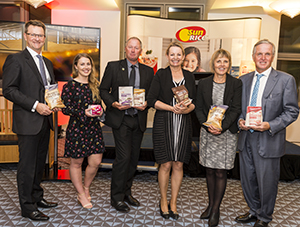 The theme of the night was to showcase that SunRice is not just a commodity trader but also adds value to the product.
The theme of the night was to showcase that SunRice is not just a commodity trader but also adds value to the product.
SunRice Chairman Mr Laurie Arthur and Chief Executive Mr Rob Gordon addressed the crowd of rice growers, Members of Parliament and industry officials.
Deputy Prime Minister and Minister for Agriculture and Water Resources, the Hon. Mr Barnaby Joyce MP and Shadow Minister for Rural and Regional Australia, the Hon. Mr Joel Fitzgibbon MP attended the event to speak about their support for the rice industry expanding into new export markets.
The menu showcased Australian rice and one popular dish was duck breast on a bed of rice. Most growers found this a quite ironic as ducks are a significant pest for the industry.
Growers and industry officials were encouraged to network with political staff demonstrating that the Australian rice industry makes an important contribution to the country’s export economy and supports local jobs in regional NSW.
I had the opportunity to speak with both Mr Arthur and Mr Gordon about my research and the exciting work that the Functional Grains Centre is currently producing that has the potential to value-add to rice products. Mr Arthur even suggested that I could work for SunRice in South East Asia in the future - fingers crossed he remembers the conversation in a couple of years.
Graduation for FGC PhD Dr Kyle Reynolds
Research by a Charles Sturt University PhD graduate may lead to the development of a new, more sustainable source of 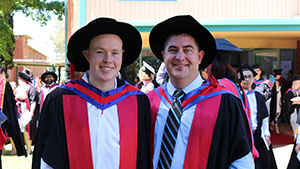 vegetable oil production - using genetic engineering.
vegetable oil production - using genetic engineering.
Dr Kyle Reynolds, who’s research was carried out through the Australian Research Council (ARC), Industrial Transformation Centre for Functional Grains (FGC), was awarded his PhD in a ceremony on Tuesday 12 December 2017.
“The demand for vegetable oils has increased and a large proportion of the current supply comes from unsustainable sources such as coconut oil and palm oil,” Dr Reynolds said.
“My research demonstrated that by using genetic engineering of plants, oils with a similar composition to those produced by coconut palm or oil palm can be accumulated in high levels in the leaves of a high biomass crop, such as sorghum, switchgrass, sugarcane or miscanthus.
It’s hoped this research may revolutionise worldwide vegetable oil production by providing a more sustainable source.”
Dr Reynolds’ research was supported by a Graham Centre University Research Centre scholarship and his research was completed at the CSIRO.
Professor Chris Blanchard appointed to GRDC Board
Functional Grains Centre Director, Professor Chris Blanchard has been appointed to the Board of the Grains Research and Development Corporation (GRDC).
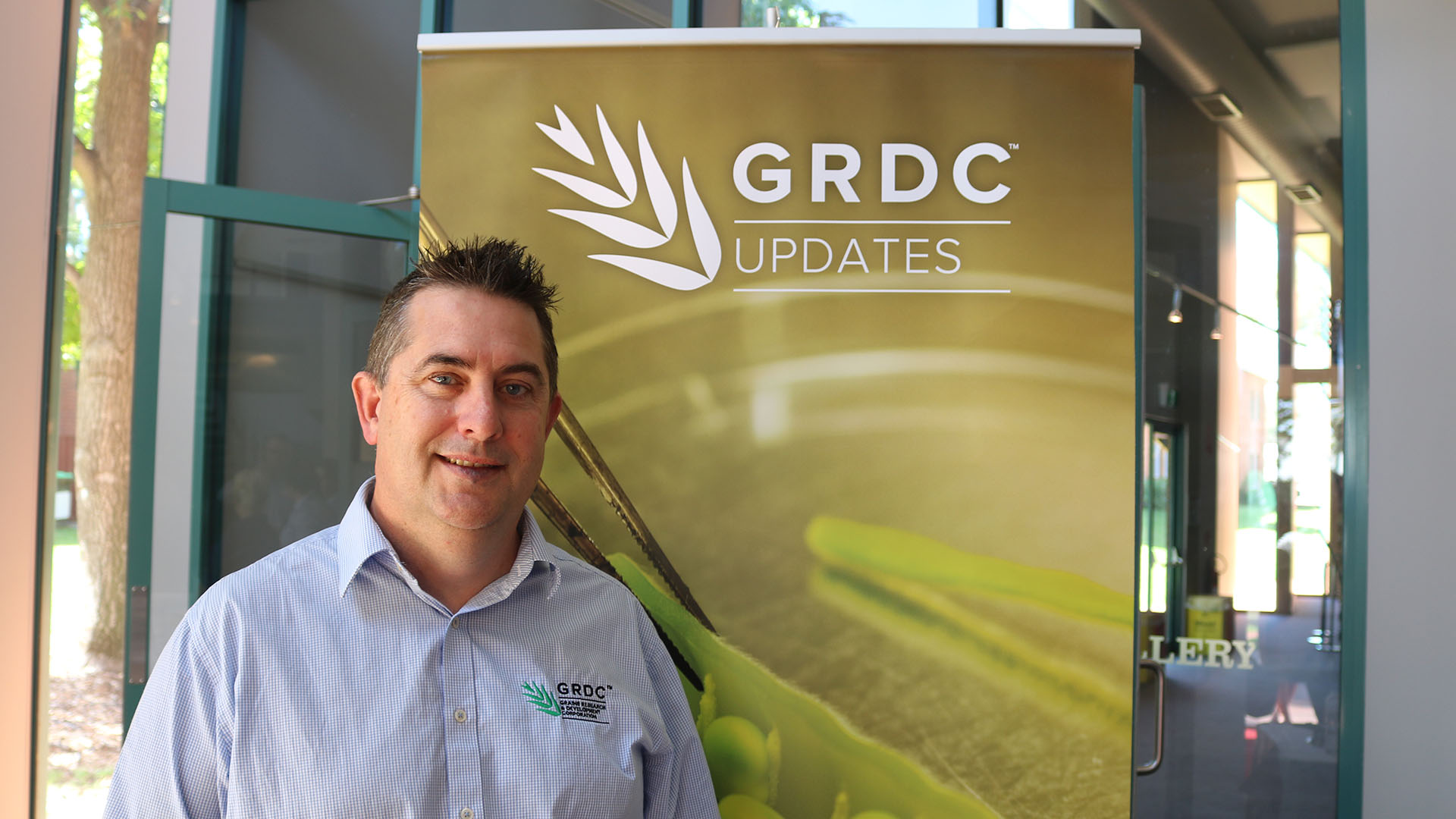
“My research interest is in the area of grain quality and investigating ways to improve the value of grain,” Professor Blanchard said.
“I’m looking forward to the opportunity of serving as a Board member of the Grains Research and Development Corporation to help drive investment in projects and partnerships to increase the profitability of the Australian grains industry.
“There is a perception that growers are the most passionate advocates for the grains industry however there are industry participants throughout the supply chain who are equally passionate about ensuring that the Australian grain industry prospers through investment in research and development.”
Professor Blanchard is also leader of the grain and meat quality pathway at the Graham Centre for Agricultural Innovation, where research is focused on improving productivity, profitability and sustainability throughout the grains value chain.
He served as Deputy Chairman of the GRDC Southern Regional Panel from 2008- 2015.
Graham Centre Director Professor Michael Friend has congratulated Professor Blanchard on his appointment.
“The appointment recognises Professor Blanchard’s contribution to grains research and development over many years and his commitment to ensuring that research is targeted to meet the needs of industry,” Professor Friend said.
The GRDC is a statutory corporation supported by a grower levy and Australian Government contributions, responsible for planning, investing in and overseeing research, development and extension across the Australian grains industry.
Why people choose Gluten Free
Gluten-free. Two words that have become common on menu boards around the country and Functional Grains Centre (FGC) research has shone new light why some people choose these foods.
FGC PhD candidate Ms Kyah Hester’s research is focused on non-coeliac gluten avoidance.
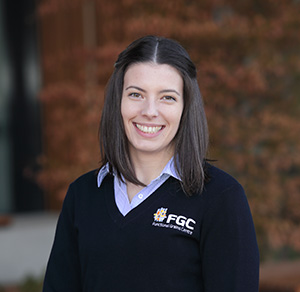 “The popularity of gluten-free diets has gained traction over the last decade, to a point where up to 20 per cent of the population is estimated to be engaged in gluten avoidance behaviours,” Ms Hester said. “This far exceeds the estimated prevalence of gluten-related disorders, such as coeliac disease, suggesting that people are choosing to go gluten free for a range of reasons which may not be medical in nature.”
“The popularity of gluten-free diets has gained traction over the last decade, to a point where up to 20 per cent of the population is estimated to be engaged in gluten avoidance behaviours,” Ms Hester said. “This far exceeds the estimated prevalence of gluten-related disorders, such as coeliac disease, suggesting that people are choosing to go gluten free for a range of reasons which may not be medical in nature.”
Ms Hester’s research involved an online study which weighted its demographic data against information held by the Australian Bureau of Statistics (ABS) in order to gain an accurate representation of gluten avoidance within the population.
“The research indicates that gluten avoidance rates have plateaued,” Ms Hester said. “The implication for the industry is that, while gluten-free products remain a vital niche market for suffers of coeliac disease, products containing gluten will continue to be used well into the future by healthy consumers.”
The online survey was followed up with an in depth study of non-coeliac gluten avoiders to measure the frequency of avoidance behaviours, participants’ perceptions, determinants of food choice, interpersonal experiences relating to their diets and a wide range of psychological variables, including personality traits.
“The results suggest that non-coeliac gluten avoiders don’t just steer away from gluten but also avoid other food types, such as dairy or eggs,” Ms Hester said. “They were also significantly more likely to experience frequent adverse physiological symptoms, both after the consumption of foods and on a general daily basis.”
Ms Hester hopes her research can be used to give doctors an insight into why people choose to go gluten-free.
“My research highlights that many non-coeliacs aren’t satisfied by the treatment response they get from doctors, leading them to look for solutions online or via experimental diets.
“I hope my research provides insight for doctors, so that they may improve their interactions with this population, helping to reduce the risk of adopting a self-managed diet without proper investigation of their symptoms.” Ms Hester said.
Ms Hester’s research is supervised by Professor Anthony Saliba from Charles Sturt’s School of Psychology and Dr Erica McIntyre from the University of Technology Sydney.
Professor Saliba said most research has focused on wheat avoidance but that only tells part of the story.
“Gluten avoidance is characterised by a complex interaction between bodily symptoms and the psychology of individuals. At present, there is a gap in medical car for individuals who present with gastrointestinal symptoms that they feel relate to gluten consumption. This research tells us a lot about those people,” Professor Saliba said.
Ms Hester was awarded a scholarship by FGC. Funded by the Australian Government through the ARC’s Industrial Transformation Training Centres scheme, the FGC is administered by Charles Sturt University and is an initiative of the Graham Centre for Agricultural Innovation.
Researchers raise awareness of Thrombosis
Researchers from Functional Grains Centre put the kettle on for morning tea to raise awareness of Thrombosis, a health condition that claims one in four lives worldwide.
 The morning tea held on Friday 13 October 2017 as part of World Thrombosis Day provided an opportunity for people to find out more about the condition and to check their body mass index and blood pressure.
The morning tea held on Friday 13 October 2017 as part of World Thrombosis Day provided an opportunity for people to find out more about the condition and to check their body mass index and blood pressure.
"Thrombosis is the formation of potentially deadly blood clots in the artery or vein and the condition is one of the leading causes of death worldwide," Charles Sturt lecturer in haematology Dr Abishek Santhakumar said.
"World Thrombosis Day seeks to increase global awareness of thrombosis, including its causes, risk factors, signs, symptoms and evidence-based prevention and treatment.
"Improving human health is one of the areas of research at the Functional Grains Centre and Charles Sturt University School of Biomedical Sciences and we think it's important to shine a light on this often overlooked medical condition,” Dr Santhakumar said.
Focus on oilseeds
A team of researchers from the Functional Grains Centre attended the Australian Oilseeds Federation Forum in October. Functional Grains Centre postdoctoral researcher, Dr Siong Tan reports.
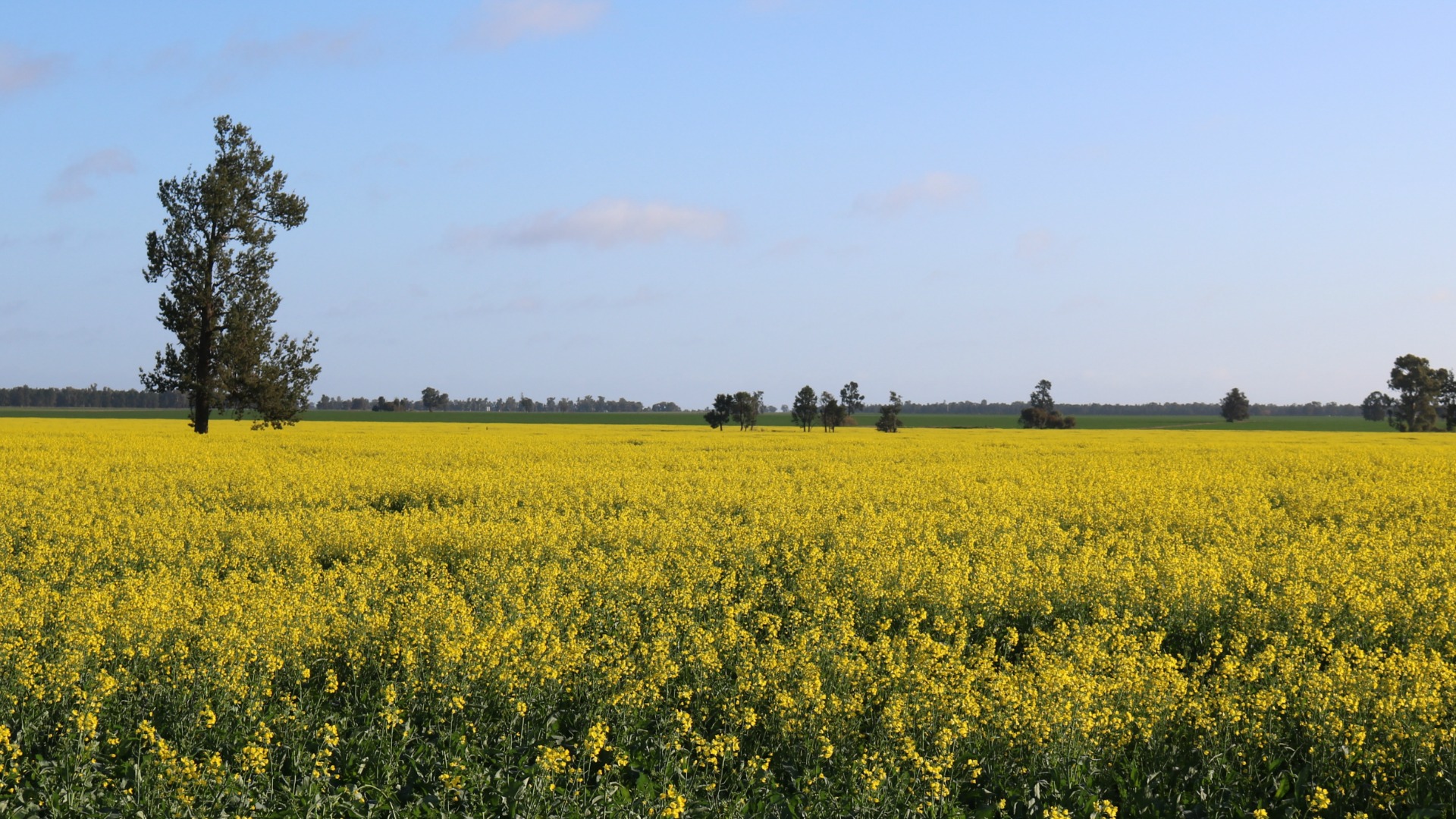 The Australian Oilseeds Federation Forum 2017, held in Sydney on Thursday 26 October 2017 focused on bringing science and industry together.
The Australian Oilseeds Federation Forum 2017, held in Sydney on Thursday 26 October 2017 focused on bringing science and industry together.
The forum examined all aspects of the supply chain from oilseeds to meal and oils. Topics included the need to meet market demands, new products and the supply chain implications, making best use of the meal protein, and the latest innovations.
FGC member Dr Randy Adjonu gave a talk on oils’ latest trends and advances. I gave a presentation about canola meal, focused on processing of canola meal into a high protein, high value meal.
It was a great day away from the laboratory to socialise with people from the oilseed industry and an important opportunity to catch up with current industry partner and prospective collaborators to develop new partnerships.
Personal perspective on school mentoring program
PhD candidates from the Functional Grains Centre took on the role of science mentors in the ‘My Science’ program at Mater Dei Primary School in Wagga Wagga.
Ms Annie Riaz reflects on the experience.
I volunteered, along with fellow FGC PhD candidates Ms Esther Callcott, Mr Stephen Cork, Ms Shiwangni Rao and Ms Michelle Toutounji, to work as a mentor for year 5 students undertaking a scientific investigation.
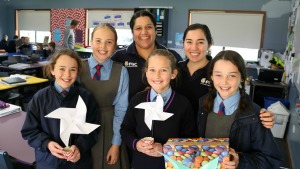 The theme was the use of renewable energy (sun, wind, water) resources for power generation. We helped the children carry out their experiment in a scientific way during three 90-minute sessions.
The theme was the use of renewable energy (sun, wind, water) resources for power generation. We helped the children carry out their experiment in a scientific way during three 90-minute sessions.
In the first session, the children planned their experiment by brainstorming different ideas with the mentors before designing an experiment based on a hypothesis. The second session was more exciting both for the mentors and the school students. It was all about practically performing the experiment and collecting data. The third session involved helping the children analyse and present their data in a scientific manner.
The event culminated in a science fair that was an outstanding platform for the primary school students to present their scientific work in front of parents and school community.
The students put in a lot of effort to present their very first scientific work and were eager to show and explain it. This event was also covered by a local news channel. Overall it was a great learning experience, not only for the children only but also for the mentors.
Australasian Grain Science Association conference
Functional Grains Centre researchers attended the 67th Australasian Grain Science Association Conference held in Christchurch New Zealand.
PhD candidates Ms Esther Callcott and Mr Stephen Cork prepared this report.
The conference begins
After our mammoth trip across the ditch, we attended our first day at the conference. It began with a welcome speech from host Professor Charles Brennan. The first talks were based on the theme ‘The Future of Grains’. This included topics around the health effects and functionality of wheat bran fibres, optimising wheat alternative doughs with protein supplementation, and consumer perception of cakes make from red kidney beans.
Students took the floor for the second half of the day. In this session students from all universities and research centres, like the Functional Grains Centre (FGC) had the opportunity to present their research. The professionalism and delivery of the presentations during this session was outstanding. The students were judged by a secret panel.
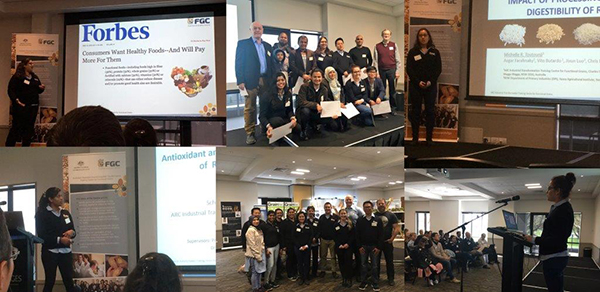 We heard from students that were investigating the functionality of pasta made from wheat-based doughs supplemented with mushroom powder, how stevianna can influence the physical properties of muffin batter and how in-vitro digestion of milled cereal grains can be associated with digestion in pigs. FGC PhD students gave talks on their current research ranging from in-vitro digestibility of rice using different rice processing methods, to the impact of polyphenols derived from coloured rice, barley and sorghum on colorectal cancer cells. The afternoon also saw the student award presentations, Ms Shiwangni Rao, Ms Kiara Thompson, Ms Esther Callcott and Mr James Lee from the FGC all received awards for their work. Later that night we had the conference dinner and saw good food, wine and entertainment.
We heard from students that were investigating the functionality of pasta made from wheat-based doughs supplemented with mushroom powder, how stevianna can influence the physical properties of muffin batter and how in-vitro digestion of milled cereal grains can be associated with digestion in pigs. FGC PhD students gave talks on their current research ranging from in-vitro digestibility of rice using different rice processing methods, to the impact of polyphenols derived from coloured rice, barley and sorghum on colorectal cancer cells. The afternoon also saw the student award presentations, Ms Shiwangni Rao, Ms Kiara Thompson, Ms Esther Callcott and Mr James Lee from the FGC all received awards for their work. Later that night we had the conference dinner and saw good food, wine and entertainment.
Day two of the AGSA conference
PhD candidates Ms Esther Callcott and Mr Stephen Cork report that FGC research was on show on day two of the 67th Australasian Grain Science Association Conference.
The second day of the conference involved presentations from delegates ranging from the prevalence and role of Amylase trypsin inhibitors in foods, designer rice, pasting and textural properties of aging waxy rice aging, commercialization of plant protein based bioplastics, through to studies on the interaction between human digestion and sensory perception.
FGC member Dr Abi Santhakumar gave a talk on the potential properties of anthocyanins in reducing the risk of cardiovascular disease in sedentary populations. Anthocyanins are flavonoids that are associated with coloured pigments that have been found in coloured fruits and vegetables including coloured rice. Anthocyanins may reduce the risk of cardiovascular disease as they are a natural antioxidant that can supplement our body’s antioxidant systems. Antioxidants are used in our bodies to decrease the damage of free radicals in our cells. For example, damage in our blood vessels leads to formation of plaques with ‘angry’ platelets combining with white blood cells. The formation of plaques is cause of common life threatening condition known as thrombosis. Dr Santhakumar’s team performed a randomized double blind trial with capsules containing anthocyanins with pro-thrombotic volunteers. Dr Santhakumar reported that anthocyanins which can also be found in coloured rice have potential to act as a complementary therapeutic agent with current thrombotic treatments such as aspirin.
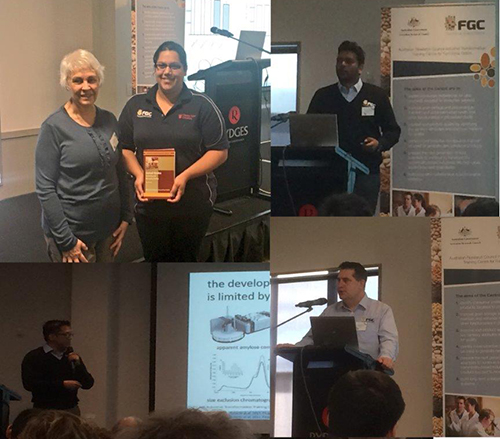 FGC member Dr Vito Butardo presented on his work on characterizing cooked rice grain digestibility using single and multiple digestive enzyme cocktails. Dr Butardo proposed the elegant use of a double enzyme assay for high throughput screening of rice varieties for validation by amylolysis and confirmation using clinical glycemic index tests.
FGC member Dr Vito Butardo presented on his work on characterizing cooked rice grain digestibility using single and multiple digestive enzyme cocktails. Dr Butardo proposed the elegant use of a double enzyme assay for high throughput screening of rice varieties for validation by amylolysis and confirmation using clinical glycemic index tests.
After the talks, Professor Lindsay O’Brien presented the best student presentation award judged by a secret panel the day before. The best student presentation was award to the FGC’s Ms Esther Callcott who received a book titled “Cereal grains assessing and managing quality”. At the end of day two, the FGC hosted a dinner for AGSA students to promote networking. This was a well-attended event and a great opportunity to learn about each other’s work.
The FGC is looking forward to hosing the next Australasian Grain Science Association conference in September 2018. More here https://www.ausgrainscience.org.au/conference/2018-conference/
Wheat breeding focus
Functional Grains Centre researchers, Professor Chris Blanchard, Ms Annie Riaz, Dr Asgar Farahnaky and Associate Professor Dan Waters attended the Australian Grains Technology (AGT) field day held at the Kabinga Research Centre, headquarters for AGT’s south-eastern Australian breeding program, in early October 2017.
As Professor Waters reports, it put the spotlight on wheat breeding.
Although Australian Grains Technology (AGT) has an active breeding program for a number of crops, wheat was the focus of the day. The Kabinga Research Centre assists AGT in the delivery of long season and dual purpose wheat varieties suited to acid soils. The field day was well attended by farmers, agronomists and consultants.
Plant breeders need to package many traits into new varieties targeted to a diverse range of environments and sowing windows and this means the AGT wheat breeding program is, with 250,000 plots, large and complex. AGT wheat breeders Britt Kalmeier and Russell Eastwood clearly explained how all the parts of the breeding program come together to deliver new high-yielding high-quality varieties to wheat growers. A highlight of the day was inspecting the historical wheat varieties which Ms Annie Riaz is studying for her PhD in the FGC. She has discovered modern wheat varieties are not only high yielding relative to the historical varieties, they also contain reduced levels allergenic proteins relative to historical varieties.


